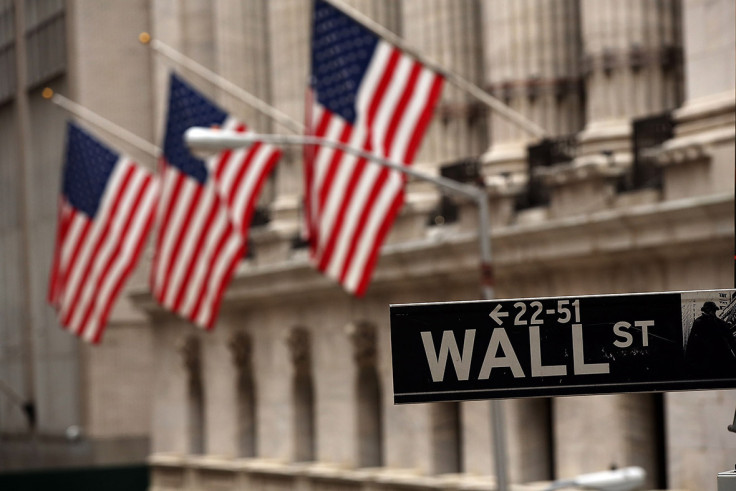US market open: Dow and Nasdaq edge lower amid disappointing data as oil rally slows

US equity markets took a turn south early on 4 February, as oil prices wavered and investors analysed weaker-than-expected reports on unemployment and productivity, which fuelled concerns over the economy's health.
Shortly after the opening bell, the Dow Jones Industrial Average lost 0.26% to 16,293.82, while the S&P and the Nasdaq were down 0.24% and 0.47% respectively, as oil prices reversed the previous session's gains and headed lower, before edging higher again. Brent crude gained 0.23% to $35.12 (£24.04, €31.35) a barrel, while West Texas Intermediate rose 1.19% to $32.67 a barrel.
On the macroeconomic front, initial jobless claims rose by 8,000 to 285,000 in the last week of January, slightly higher than the 280,000 analysts expected but at a very low level nonetheless, as any number below 300,000 is historically considered a sign of a robust labour market.
"That's still a very low level of claims, and with the consumer-facing economy doing well as people eventually spend their gas price windfall, the overall trend is unlikely to rise far," said Ian Shepherdson, chief economist at Pantheon Macroeconomics.
"Still, we are braced for claims to rise over the next couple of months, and for payroll growth to slow from the unsustainable fourth-quarter pace."
Meanwhile, the productivity of US businesses fell at a 3% year-on-year in the fourth quarter, marking the biggest decline since the start of 2014, while it dropped 0.3% over the course of the past 12 months and unit labour costs increased by 4.5% year-on-year in the fourth quarter and 2.8% over 2015 as a whole.
"For the time being, the deflationary pressure coming from the continued slump in commodity prices and the soaring dollar will keep inflation contained," said Paul Ashworth, chief US economist at Capital Economics.
"But eventually that pressure will fade and when it does, the current growth rate of unit labour costs suggests that price inflation will climb above the Federal Reserve's 2% target.
"Accordingly, the markets might be right that the Fed will stand pat for a while. But interest rates can't remain so close to zero indefinitely."
Having posted its largest one-day drop versus the euro in two months on 3 February, the dollar continued to slide, losing almost 1% against both the European currency and the yen after New York Federal Reserve President William Dudley hinted tighter financial conditions could force the Fed to delay its next rate hike.
Elsewhere, with the exception of the Nikkei, which fell 0.85%, Asian stocks enjoyed a positive session, while by mid-afternoon their European counterparts were mostly in the red, with London's FTSE 100 the only index to buck the trend, as it gained 0.55%.
© Copyright IBTimes 2025. All rights reserved.




















